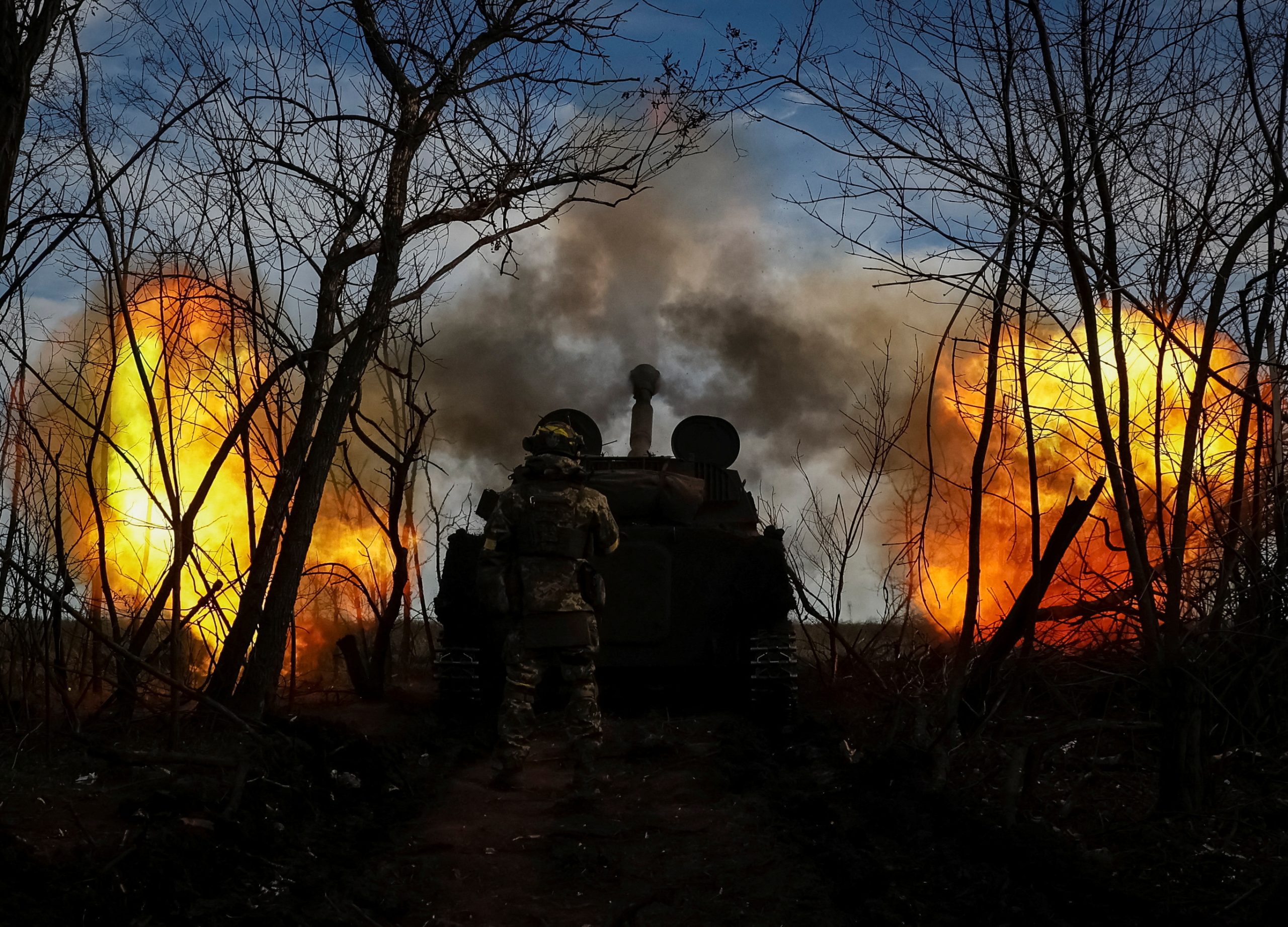
Lauren C. Moye, FISM News
[elfsight_social_share_buttons id=”1″]
Russia said on Friday that they were open to peace negotiations with Ukraine, but only if the United States and other Western nations accepted Moscow’s demands.
The comment was made in response to a Thursday statement by President Joe Biden following White House talks with French President Emmanuel Macron. Biden denied plans to contact his Russian counterpart but was “prepared to speak” with Vladimir Putin if he was interested in negotiating an end to the war.
“He hasn’t done that yet,” Biden added.
In their response, Russia denied being closed to negotiations.
“The president of the Russian Federation has always been, is, and remains open to negotiations in order to ensure our interests,” said Kremlin spokesman Dmitry Peskov.
He then said that a Western refusal to recognize annexed territory, including the illegal annexation of four regions in late September, was hindering a diplomatic solution to ending the war. Moscow has previously made negotiations contingent on sweeping security guarantees, including the NATO alliance backing off and reversing expansions in the East.
Russia blames the prolonged war on the West’s support of Ukraine.
During a phone call on Friday, Putin told German Chancellor Olaf Scholz that the Western support of Ukraine was “destructive” and contributed to Ukraine’s unwillingness to negotiate an end to the war while Russian troops were present in their sovereign territory.
“Attention was drawn to the destructive line of Western states, including Germany, which are pumping the Kyiv regime with weapons and training the Ukrainian military,” the Kremlin said in their readout of the call.
The statement continued: “All this, as well as comprehensive political and financial support for Ukraine, leads to the fact that Kyiv completely rejects the idea of any negotiations.”
Critical Ukrainian infrastructure like the energy grid, hospitals, and phone service has been repeatedly targeted by Russian strikes. This has left millions without power in winter, threatened the clean water supply, and hampered communications efforts throughout the country.
Three people were killed and seven wounded just in the region of Kherson between yesterday and today, the regional governor Yaroslav Yanushevych said. He added on Telegram that the city of Kherson had been bombarded 42 times during the same period. The recently liberated city has experienced at least two power outages as a result.
Russia firing non-explosive “dummy heads” on nuclear warheads
New evidence suggests that Russia is now firing nuclear-capable missiles with non-explosive warheads.
The Ukrainian armed forces’ research unit said that missile fragments found in Lviv and Khmelntyskyi on Oct. 31 were from an Kh-55 cruise missile, which was designed to house a nuclear warhead.
At a Thursday briefing, the researcher’s spokesperson Mykola Danyliuk said that the intention of the missiles was to “distract the attention of Ukraine’s air defense system and tire it out.”
Earlier British intelligence first suggested that Russia was using the aging cruise missiles after alteration after reviewing video footage. While they agree that the number of missile strikes in Ukraine is meant to exhaust the air defense system, Britain’s military defense ministry also said it was a sign of Russia’s “depleted” stock.
“Whatever Russia’s intent, this improvisation highlights the level of depletion in Russia’s stock of long-range missiles,” the ministry said.
Russia presents outline on Zaporizhzhia nuclear safety zone
Amid fears of a nuclear fallout disaster, the International Atomic Energy Agency (IAEA) has been attempting to establish a safety zone around the largest nuclear facility in Europe since mid-September.
On Friday, the Russian state-owned news agency RIA said that a position on the creation of a safety zone around the Zaporizhzhia plant had been submitted to the IAEA.
“Our representative at the IAEA (International Atomic Energy Agency) in Vienna, Mikhail Ulyanov, is actively working, we all understand, but now the decision is not on the Russian side, not in Moscow,” Rosatom CEO Alexei Likhachev was quoted by RIA as saying.
On Friday, the Italian newspaper La Repubblica said that IAEA head Rafael Grossi hopes to reach a successful agreement by the end of the year. He stated to the newspaper, “My commitment is to reach a solution as soon as possible. I hope by the end of the year.”
He added the goal is to set up a safety zone to prevent shelling near the nuclear plant rather than to “create a military situation that would favor either one party or the other.”
Ukrainian embassies receive disturbing ‘bloody packages’
Ukrainian embassies in Europe are receiving “bloody packages” containing animal eyeballs, the Ukrainian foreign ministry said. The eyeballs are soaked in an unspecified liquid that gives the eyeballs a distinctive color and smell.
Embassies in Hungary, the Netherlands, Croatia, Poland, Spain and Italy received a bloody package. General consulates in Naples, Krakow, and Brno also received animal eyeballs, said ministry spokesperson Oleg Nikolenko.
“We are studying the meaning of this message,” Nikolenko wrote in a statement on Facebook,” Nikolenko stated on Facebook.
The announcement follows the report of letter bombs sent to the Ukrainian embassy in Madrid location as well as other non-Ukrainian political targets. There has also been a general uptick in threatening material and vandalism attempts at Ukrainian mission sites.
Ukrainian foreign minister Dmytro Kuleba had ordered all targeted embassies and consulates to heighten security as a result.
